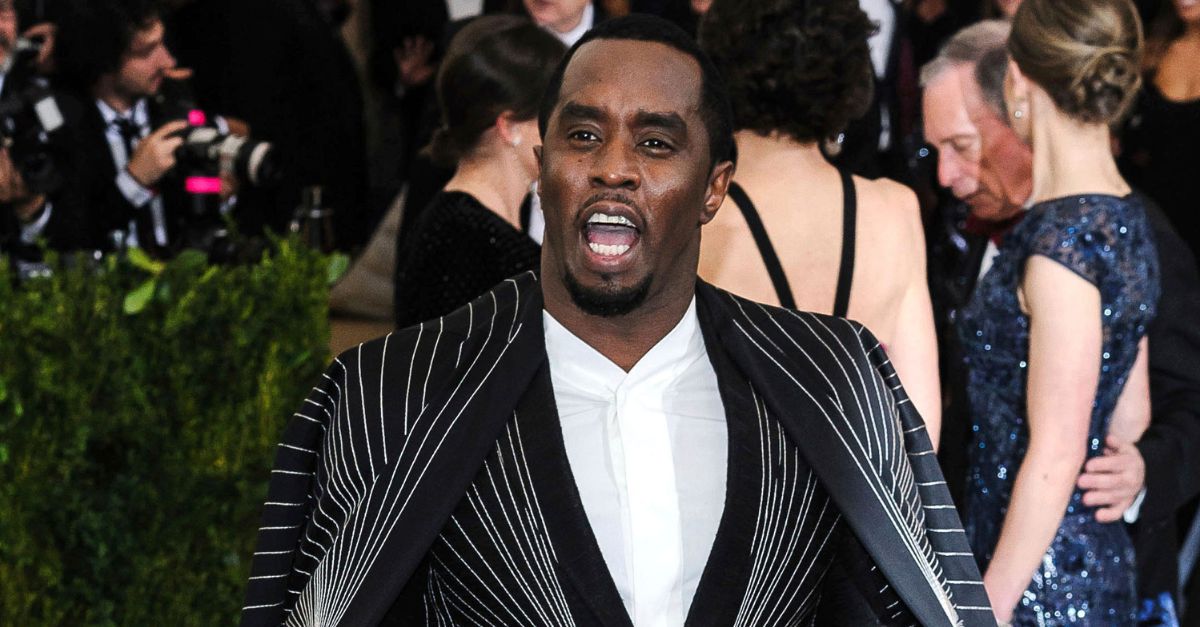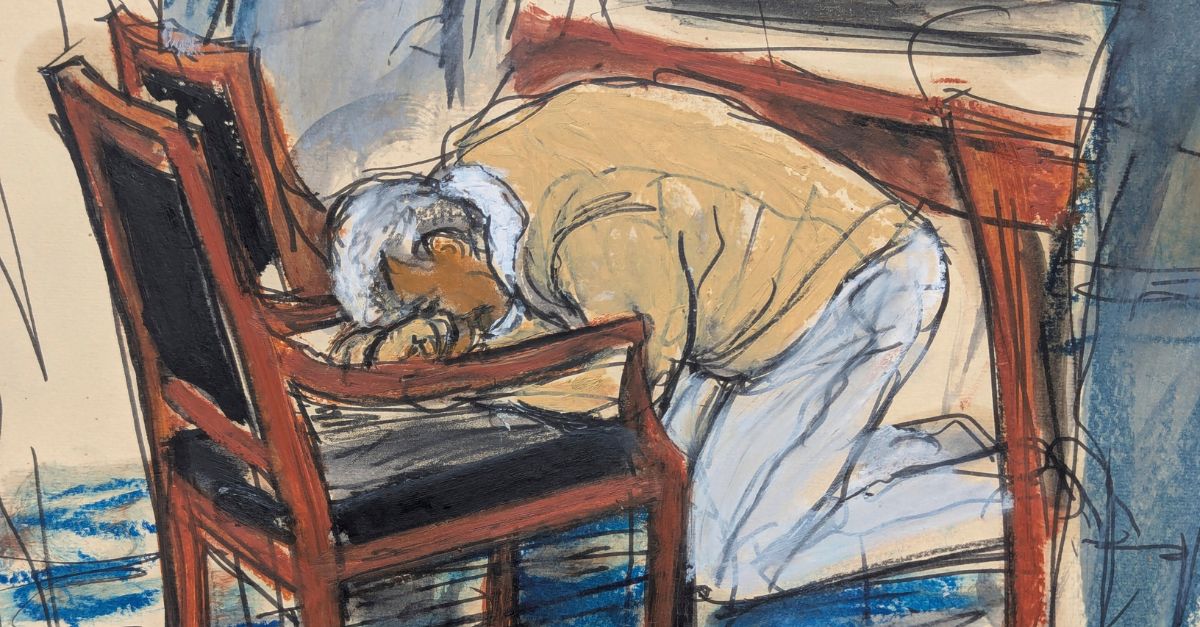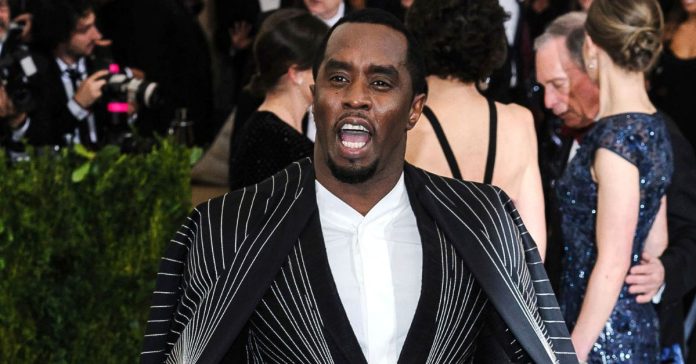
Sean P. Diddy Combs at the 2017 Costume Institute Benefit Gala celebrating the opening of the exhibition “Rei Kawakubo/Comme des Garcons: Art Of The In-Between” held on May 1, 2017 at The Metropolitan Museum of Art in New York City (File Photo by: zz/ESBP/STAR MAX/IPx 2017 5/1/17).
For the past year, the world has seen shockwave after shockwave regarding the indictment, case, and trial of Sean “Diddy” Combs, and the verdict was no different. After weeks of intense testimony by people from all corners of Combs” overwhelming orbit, including assistants, escorts, and prior female partners, the jury took a couple of days to render its decision: Combs was completely acquitted of sex trafficking and racketeering charges, and was only convicted of transportation to engage in prostitution. While many legal experts opined that Combs not being convicted of racketeering wasn’t a major shock, some were surprised at the acquittal of the sex trafficking charges, particularly as they pertain to Cassandra Ventura, a key witness in the trial and Combs’ former partner of over ten years.
In May 2024, the now-infamous surveillance video showing Combs brutally attacking Ventura in 2016 in a hotel hallway surfaced, and while viewers were rightfully disturbed by the content, the world received more context to it once the trial got underway. In the beginning portion of the trial, Ventura testified that the incident occurred during one of Combs’ orchestrated “freak off” parties and that Ventura was attempting to flee after Combs allegedly struck her while it was going on. Ventura testified that when she fled, “All I could think about was getting out of there safely,” yet unfortunately, that did not occur. Instead, the video showed Combs throwing a vase at her, kicking her, and physically dragging her back to the room.
In the Southern U.S. District of New York, sex trafficking is defined as the exploitation of individuals for commercial sex, using fraud, force, or coercion; the 2016 hotel surveillance video showed Ventura being physically dragged and forced back to continue engaging in a freak-off with a male escort, which to many served as clear evidence of sex trafficking. However, neither that video nor Ventura’s testimony was enough. Combs was convicted of two charges of transportation to engage in prostitution, and while each act technically faces a maximum of 10 years in prison, it’s likely Combs will serve just a few years, with prosecutors recommending between 51 to 63 months and defense recommending 21 to 27 months (likely including time already served, which is nearly a year at this point).
Love true crime? Sign up for our newsletter, The Law&Crime Docket, to get the latest real-life crime stories delivered right to your inbox.
Prior to the end of the trial, there was the possibility that Combs (if he had been fully convicted of all charges) could have spent the rest of his life behind bars – now after this shocking verdict, there is even a chance he can be out by next year. As such, experts around the world have deemed this a major win for Combs, and even his own legal team declared this a “great victory.”
Given the weeks of shocking testimony of the trial and a final verdict being rendered, the legal community is now examining how and why the case concluded in the way it did, particularly when it comes to the alleged victims and Ventura. After the world saw that brutal video of Ventura being attacked while trying to flee a freak-off, many asked: was that not adequate evidence? What would constitute as enough? And, even if there was more evidence, would that have even made a difference? Is our society not as advanced as we thought we were when it came to rendering justice for the brave female survivors that come forward to tell the world what happened to them?
Throughout the trial, the prosecution team was forced to grapple with the difficult task of explaining to jurors and the public why so many of the female alleged victims of Combs who testified would go back to him and express in text messages and other communications that they wanted to engage in freak-offs. On the stand, Ventura was faced with such evidence, including a message she sent to Combs in August 2009 where she stated “I’m always ready to freak off,” while Jane (another alleged victim) was forced to read aloud texts by Combs’ lawyers in which she professed her love for him even after allegedly being forced to engage in freak-offs.
The defense’s main tactic behind this was to illustrate the point to the jury that the freak-offs were entirely consensual and evidenced by the alleged victims in such texts. However, the prosecution recruited psychologist Dawn Hughes to provide expert testimony on the impact of domestic violence and sexual abuse, particularly on why many female victims stay in abusive relationships, and it turns out the reasons are plentiful. The reasons Hughes discussed included the abuser controlling the victims’ access to money or financial resources, victims experiencing intense shame and humiliation in coming forward or leaving the relationship, or even trauma bonding, with victims having mixed feelings of love but also fear of their abuser.
This seemed to ring especially true for the alleged victims who testified. Ventura discussed how much control Combs exerted over her finances, particularly as her boss and the head of the label she was signed to, and one of Combs’ former assistants even testified Ventura once told him: “I can’t get out. You know Mr. Combs oversees so much of my life. He controls my music career, he gives me an allowance.” Even further, Jane testified as to her simultaneous devotion and distress regarding her relationship with Combs, explaining why she still felt love for him and that even at the time up to the trial, he was still paying her $10,000 monthly rent.

In this courtroom sketch, Sean “Diddy” Combs reacts after he was convicted of prostitution-related offenses but acquitted of sex trafficking and racketeering charges that could have put him behind bars for life, Wednesday, July 2, 2025, in Manhattan federal court in New York. (Elizabeth Williams via AP)
Finally, a common theme throughout Ventura’s testimony was explaining how she could still have caring feelings toward Combs despite all she claimed he put her through, stating that when he first proposed a “freak-off” to her, she was “confused, nervous” but that “I also loved him very much, and wanted to make him happy.”
Hughes, the psychologist who testified for the prosecution, has seen her fair share of cases filled with domestic violence allegations, given she also served as an expert witness in the R. Kelly and Johnny Depp trials, and she used that expertise to try to explain to this jury what the severe impact of such violence can be. Hughes went into detail as to how the factors of financial dependence, control and power, and the shame or humiliation a victim can feel from their abuse can lead to them not wanting to come forward.
Despite such efforts, explaining this to a jury proved to be a difficult battle, with the eight men and four women declining to find either Ventura or Jane were the victims of sex trafficking by Combs. Many legal experts opined on whether the makeup of the jury was the reason as to the lack of convictions in the case (with an overwhelming male presence), or if it was Combs’ immense power or privilege casting a large shadow, or simply jurors failing to see why his former partners would continue to stay with him despite such brutal conditions.
Understanding why female victims would go back to their abuser or even stay in a decade-plus relationship with him turned out to be a difficult task for many, even in a post #MeToo world – in fact, an alternate juror came forward after the verdict to explain the jury’s reasoning behind their decision. While he did not participate in the final decision-making, he explained that while the jury believed Ventura’s testimony regarding the freak-offs, he still deemed the women to be “willing participants” and that “I don’t think it was forced,” citing the text messages between Combs and Ventura.
Pointing to the text messages was a key tactic of Combs’ lawyers, who attempted to utilize those communications to show the women as not only consenting to the freak-offs, but in some cases organizing or spearheading them. Marc Agnifilo, the lead defense counsel, delivered the closing statement in which he pointed to “loving” messages Ventura sent to Combs throughout the relationship and proposed she was motivated by financial reasons, stating “She is sitting somewhere in the world with $30 million.”
Perhaps most shockingly, Agnifilo insinuated that her claim that she was raped by Combs in 2018 could not be true as she had consensual sex with him afterwards, stating: “If there was really a rape… she wouldn’t then have gone back and had consensual sex with him.” Agnifilo capped his statement by calling Combs’ relationship with Ventura a “modern love story” and asking the jury to “do the right thing.”
To many, this classification was troubling at best, given the amount of violence the world saw Combs inflict on Ventura in even just one instance on that videotape. While Combs is undoubtedly entitled to a defense and his attorneys were using all the tactics they could for their client, to many, the inability to convict Combs of sex trafficking (particularly pertaining to Ventura) and the ways the defense painted Ventura have proven to be concerning, both for this trial and others that will follow.
The alternate juror who spoke publicly provided some insight as to this specific case, yet many are still searching for answers as to how cases involving domestic violence can be better handled in the future. One legal writer opined, “This trial is yet another demonstration that the legal system is ill-equipped to deal with the complexities of intimate partner violence, the ways in which survivors deal with trauma, and the uneven power dynamics weaponized by abusers. If we had better legal frameworks for domestic violence and coercive control, perhaps prosecutors would not have turned to trafficking charges to try to secure justice.”
In regard to Ventura, who is now married to actor Alex Fine and the mother of three children, she has spoken of feeling relieved by being able to tell her story and move on with her life. After the verdict was rendered, her attorney stated she was at peace with how the case ended and that her courage to file her November 2023 civil complaint against Combs was the beginning of the impact she has now had on the “entertainment industry and the fight for justice.”
Ventura was the very first alleged victim to speak out against Combs, which ultimately led to the government raids on his homes, his indictment, and this eventual trial and verdict, as well as countless civil lawsuits. While the verdict did not unfold the way Ventura and others might have hoped, many believe this is a step toward holding alleged perpetrators of violence accountable, and paving the way for a safer future towards women everywhere.
Many — the writer of this piece included — will still hope that Diddy’s trial will be an illustration as to how people’s mindsets and views of intimate partner violence should be broadened so the complexities of such a dynamic will not prevent jurors from bringing some much-needed justice to victims.
This is an opinion piece. The views expressed in this article are those of just the author.

